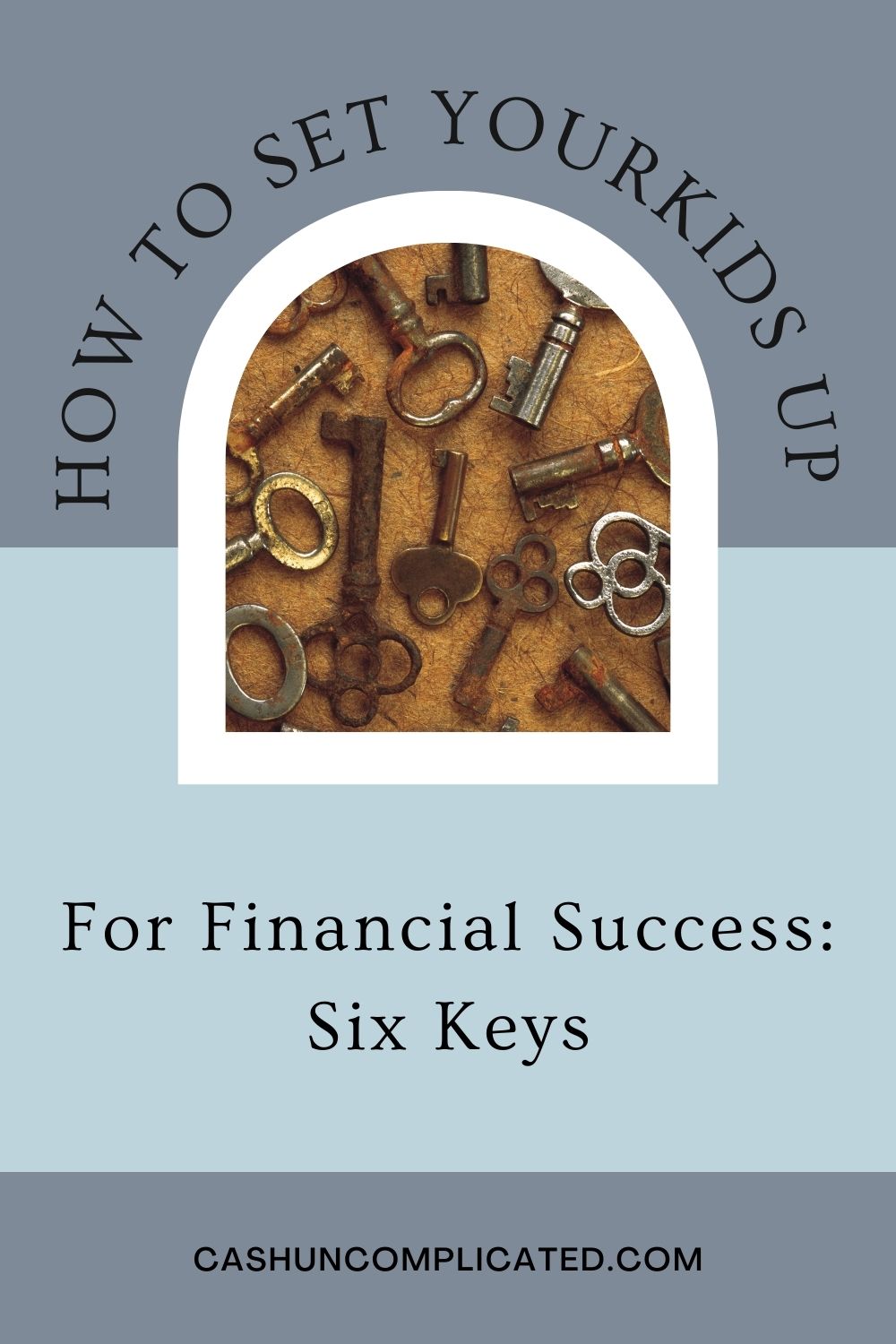Every parent wants to set their kids up for financial success. Easier said that done though as many adults still struggle themselves with basic financial literacy. There are lessons to be taught and you don’t have to be a financial expert to deliver them.
Why is This Important?
Consider these facts:
- In this article, Experian reports the average auto loan is over $23,000
- Credit card debt in the US reached over 1 trillion dollars
- According to CNBC, 34% of Americans have zero in savings
These stats are not good, and they’re getting worse. The only way to improve upon them is through education–whether it be formal, informal, or just leading by example
Will My Kids Listen?
Anyone with kids can probably attest to feeling like their children aren’t listening. Whether it’s a blank stare or general disengagement, it can seem like kids aren’t listening.
The reality though is that kids are listening, even when it doesn’t seem like it. They may not pick up all of it but they are hearing you. So it’s important to keep talking and working with your kids about money (and other things of course).
Leading by Example
W.E.B. Dubois has a quote: “Children learn more from what you are than what you teach.” The best thing any parent can do is to lead by example.
Want your kids to invest every month? Invest yourself and as they get older show them how you do it. Think your kids should have an emergency fund of three to six months? Create one for you and your family.
Believe that parents should talk calmly about money with their partner? Then have good money conversations with your significant other and role model what that looks like.
Six Keys To Your Kids Financial Success
No matter what your child’s skill level, here are six things to start with in setting your kids up for financial success.
Number 1: Simple Budget
Number one on the list is to set your child up with a simple budget. How much money in and how much money out. For example, make $100 per month, spend less than $100 per month.
Start with this and you can get into things like automation and paying yourself first when they have an understanding of the very basics.
Number 2: Compound Interest
Compound interest isn’t magic, but it’s the closest thing I’ve seen to it. The power of compounding is unfathomable and hard to grasp your head around at first. The returns are so remarkable that the average person wouldn’t believe it.
Using an example with large numbers to make the point, someone with ten million dollars invested would earn a million dollars every year at a 10 percent rate of return in the first year. That money would turn into over 20 million dollars in just about seven years. Even at a 10 percent rate of return, those are incredible numbers.
The exponent in the formula for compound interest is time. So the sooner your child starts investing, the sooner they can start the compounding train and begin accumulating massive wealth and financial security.
Number 3: Emergency Account
A very large percentage of Americans live paycheck to paycheck. That means there is zero to minimal financial runway and an unexpected expense can quickly become a crisis. There are so many things that can go wrong–job loss, car repairs, large home maintenance, unexpected medical bills, etc.
An emergency fund gives some breathing room and turns a potential crisis into more of an inconvenience. Sure, nobody likes spending $2,700 on a car repair, but it’s sure as heck a lot better than putting that repair on a credit card and paying compound interest instead of earning it.
Number 4: Pay Yourself First
Here’s how most people are taught about money. Create a budget and invest what you have left over when the month ends. This rarely works because most people spend what’s in their checking account. Having a budget is great, but we’ve got investing backwards.
Rather than spend first and save/invest what’s left over, it’s critical to pay yourself first. That way you’ve already invested before anything else has happened. Then live on the rest of the money and go about your life. After several years, your child will have accumulated great wealth.
Here’s a quick example you can use with your child, assuming you want your child to invest 30 percent of their income (change the numbers for what works for you and your family). You make $100 this month doing jobs around the house. Before you spend on anything, invest $30. Then the remaining $70 is yours to do whatever you want with it (within reason).
Show them the results after a few months and your child will be amazed. And then they’ll be astonished in five years when they start to see the power of compounding begin to take shape.
Number 5: Automation
The best way to pay yourself first is through automation, it makes things easy. When your child learns how easy it is to automate, they are much more likely to do it.
Get started early automating. When I hand out commissions/allowance to my own kids, I pay them in two ways. The first is by depositing 30 percent of what they earned into an investment account. Then I give them the rest and tell them it’s theirs to do whatever they want with it.
That way it starts to build up the investing muscle and gets them used to putting 30 percent into an investment account before doing anything else. In my opinion, automation is the best way to pay yourself first.
Number 6: Credit and Credit Cards
Credit and credit cards can be very dangerous. Especially for a young person who has no knowledge or experience with them. It’s effortless to swipe or tap the card and have something brand new at their fingertips. While it takes effort to go through their wallet/purse and pay with cash.
If the child understands compounding, they should have a good idea of how credit cards work, because it’s reverse-compounding. Compound interest but the money is going to the creditors, and not to them. So teach your kids about credit cards and help them understand the ins and outs, like:
- Reverse-compounding
- What happens when the bill isn’t paid in full
- The stress of credit card debt
- The black hole that is consumer debt
Conclusion
Kids want to learn, and they want to learn about money. Acquiring basic personal finance principles will put them a step ahead of almost everyone else in their age category.
So the best ways to teach your kids about money and setting them up for financial success is by delivering life-long lessons and leading by example. The lessons don’t have to come everyday, just teaching your kids as things come up is good enough for most.
Help your children automate their allowance/commission, show them the dangers of credit card debt, tell them how you’re paying for the new/newer car in cash, show them a compound interest calculator and work through some numbers. There are so many valuable lessons, and they’re all available to be taught.
What are some of the ways you set your children up for financial success?








